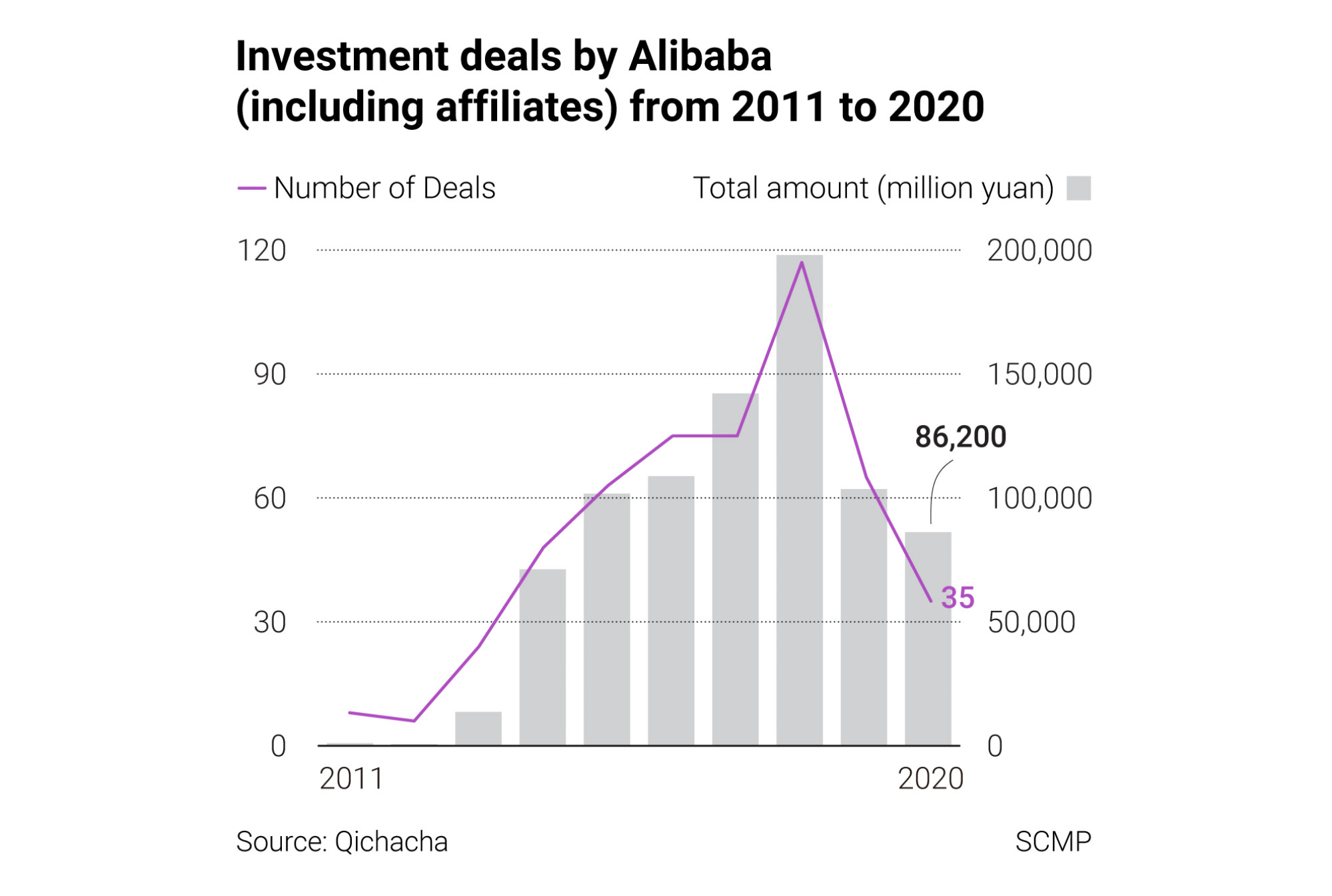
Alibaba ends a ‘cautious’ year overshadowed by antitrust probe by doubling stake in tour agency
- At 4.41 yuan per share, the price is half what Alibaba paid for its initial 5 per cent stake in Shenzhen-listed UTour Group in September last year
- In the first seven months, Alibaba invested 20.8 billion yuan in 22 deals, compared with Tencent Holdings’ 163 deals worth a combined 93.1 billion yuan in the first half
Alibaba Group Holding has invested 240 million yuan (US$37.8 million) to double its stake in a loss-making local tour agency, a deal that caps a year of “cautious” investments since the e-commerce giant became the target of an antitrust probe on Christmas Eve 2020.
Alibaba (China) Technology Co, a subsidiary of the Chinese e-commerce giant, will double its stake in Shenzhen-listed UTour Group Co from 5.02 to 11.06 per cent by buying shares from chairman Feng Bin and deputy chairman Guo Hongbin, UTour said on Thursday.
At 4.41 yuan each, the price is half the 8.46 yuan per share that Alibaba, owner of the South China Morning Post, paid for its initial 5 per cent stake in the company in September 2020. After the deal is completed, Alibaba will be the second largest shareholder after Feng.
The investment comes at a time when Alibaba is repositioning itself for future growth after a year of regulatory challenges.
In 2018, Alibaba and its affiliates – including fintech arm Ant Group and logistics unit Cainiao Network – invested a total of 198 billion yuan in 117 deals, representing a peak year for the Hangzhou-based company’s external investments, according to a report from Chinese business registration tracking platform Qichacha.
Alibaba files for metaverse trademarks in bet on future of internet
Since then, the size and number of deals have been shrinking. In the first seven months of 2021, Alibaba – excluding its affiliates – invested 20.8 billion yuan in 22 deals. That compares with social media and gaming giant Tencent Holdings, which completed 163 deals worth a combined 93.1 billion yuan in the first half of this year, Qichacha data showed.
The New York- and Hong Kong-listed company has been “cautious and conservative” in this year’s investments, Qichacha said. “Alibaba tends either to let money flow to mature projects, investing huge amounts to gain more say in the projects; or it prefers to invest in projects that help it replicate the business that it was best at, especially overseas,” said Xia Qiong, an analyst at Qichacha.

Alibaba’s 22 deals in the first seven months included investments in community group buying start-up Nice Tuan and Chinese powerbank rental firm Energy Monster, as well as a US$350 million investment in Turkish e-commerce firm Trendyol Group.
For the seven-month period, 14 of Alibaba’s investment projects, or 63.6 per cent of the total, were deals in which the e-commerce giant was the sole investor, while half were considered “strategic” in that they have a long-term impact on the company’s future development, according to the report.

The slower pace of external investments come as Alibaba has implemented some critical organisational changes in the past few months.
The company separated its domestic and overseas e-commerce businesses in a management reshuffle announced earlier this week.
In July, it formed a new life services division that included digital mapping platform Amap, online travel business Fliggy, and local services platforms Ele.me and Koubei, a move aimed at ratcheting up competition with on-demand local services market leader Meituan.

